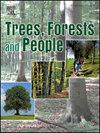Arboricultural codes of ethics lack protection for trees, wildlife, and biodiversity: A review of codes from national and international professional associations
IF 2.7
Q1 FORESTRY
引用次数: 0
Abstract
Arboriculture practices have the potential to negatively impact the natural environment, including through the pruning or removal of trees with cavities or hollows, the misuse of pesticides, and operations that are injurious to wildlife. Mitigating approaches have been limited by market disincentives, under-enforcement, and voluntary best management practices and standards. For arborists in professional associations, codes of ethics (COEs) may have the potential to improve environmentalism within arboriculture while ensuring public trust in the associations themselves. To determine how environmental protection is discussed in arboricultural COEs, we conducted a review of nine COEs from seven national and international arboricultural professional associations, coding for environmental themes and legal/regulatory requirements. Seven COEs included a total of twelve environmentally related themes, most commonly discussing trees (n=8) and the environment (n=5). Wildlife and urban forest health were not mentioned. No COE referenced environmental laws, although six COEs required adherence with laws generally. The lack of specific prohibitions or mandates on environmentally friendly practices may allow practitioners to take advantage of COE loopholes, which would allow environmentally negative practice that could not be disciplined by an ethics committee unless the code was revised. While an alternative means of environmental governance through COEs might examine whether professional members adhered to local laws and regulations, associations may face difficulties in reviewing and properly applying legislation in disciplining their members, particularly when international associations must review legislation outside of the ethics committee's region(s) of practice. We provide recommendations for improving ethics programs, including five suggested additions for COEs.
树木伦理规范缺乏对树木、野生动物和生物多样性的保护:对国家和国际专业协会规范的回顾
树木栽培方法有可能对自然环境产生负面影响,包括通过修剪或移除有空洞或空心的树木,滥用杀虫剂以及对野生动物有害的操作。缓解措施受到市场抑制、执法不力以及自愿的最佳管理做法和标准的限制。对于专业协会中的树艺师来说,道德规范(COEs)可能有潜力改善树木栽培中的环境保护主义,同时确保公众对协会本身的信任。为了确定环境保护是如何在树木学coe中讨论的,我们对来自7个国家和国际树木学专业协会的9个coe进行了审查,对环境主题和法律/监管要求进行了编码。7个coe共包括12个与环境相关的主题,最常见的是讨论树木(n=8)和环境(n=5)。野生动物和城市森林健康未被提及。没有COE引用环境法,尽管有6个COE通常要求遵守法律。由于缺乏对环境友好型实践的具体禁令或规定,从业者可能会利用COE漏洞,这将允许道德委员会无法对环境不利的实践进行惩戒,除非对准则进行修订。虽然通过coe进行环境治理的另一种方法可能审查专业成员是否遵守当地法律和法规,但协会在审查和适当应用约束其成员的立法方面可能面临困难,特别是当国际协会必须审查道德委员会执业区域以外的立法时。我们提供了改进伦理计划的建议,包括五个建议的coe补充。
本文章由计算机程序翻译,如有差异,请以英文原文为准。
求助全文
约1分钟内获得全文
求助全文
来源期刊

Trees, Forests and People
Economics, Econometrics and Finance-Economics, Econometrics and Finance (miscellaneous)
CiteScore
4.30
自引率
7.40%
发文量
172
审稿时长
56 days
 求助内容:
求助内容: 应助结果提醒方式:
应助结果提醒方式:


